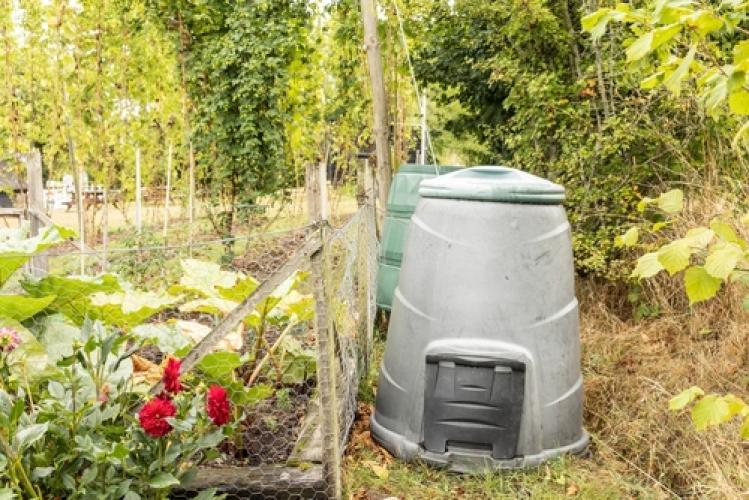You are here
- Home
- Biodiversity
- Coping with Climate Change – garden survival!
Coping with Climate Change – garden survival!

by Mike Paice, Insight Manager
It’s not hard to see climate change impacting our gardens. Around Milton Keynes where I live, for example, we went from a 30° heatwave and drought conditions to 15° with high winds and flooding within the space of a few days in September. These unpredictable and extreme conditions are being felt all over the UK. And our gardens are suffering.
As a member of the OU Gardening Club, I found the most recent talk by external speaker Nigel Start (Nigel@thestarts.plus.com), who has 40 years of being self-sufficient from his own garden, fascinating. Nigel shared some practical ways we can help our gardens. Here are a few. Some are more obvious than others:
Coping with drought
- Improve soil humus levels – Dig in manure and compost, thick layer of mulch (7-10cm) with bark or straw which can decompose and add humus back in but also protects soil and microbes from direct sunlight
- Water butts and tanks to capture and store water for irrigation (essential if on a water meter too)
- Permeable surfaces like gravel rather than paving so water is captured in your soil and reduces flood risks
Plant choices – the likely winners
- Perennials over annuals. Annuals need a lot of watering. Examples of good choices are Sedum, Salvia, Primula, Lavender, Grasses, Ferns Hardy Geraniums – many of these plants have many varieties!
- Use potted plants sparingly as they have to be watered
- Pick deep-rooted species, eg Roses, Philadelphus, Tamarix
- Bulbs – they develop roots and tend to need little care
- Drought-tolerant species – thick leaved or glossy/waxy leaved plants, grey leaved plants. Eg Eucalyptus
- Evergreens – eg ivy, holly, Ewe, Mistletoe, Camelia, Rhododendron, Potentilla
- Plant in the Autumn (Sep to Nov) so roots can develop in the wetter winter. Spring planting of shrubs and trees in particular are increasingly failing.
The likely losers
- Leafy foliage plants like Hostas, unless in shade
- Summer bedding plants
- Fine grass lawns (as opposed to tougher thicker grass)
- Water-loving plants like Astilbes
- Weak or diseased plants
If you are a member of OU staff and are interested in finding out more about the OU Gardening Club, please see the OU Gardening Club page.
Related articles
- Reducing your carbon footprint this Festive Season 28th October 2024
- Accelerating Ambition and Impact: EAUC Conference 2024 30th July 2024
- Driving change: Imagining a different transport future 23rd July 2024
- Donating items to MK Food Bank 21st July 2024
- Butterflies as indicators of our impacts on nature - Climate Perspectives 9th July 2024